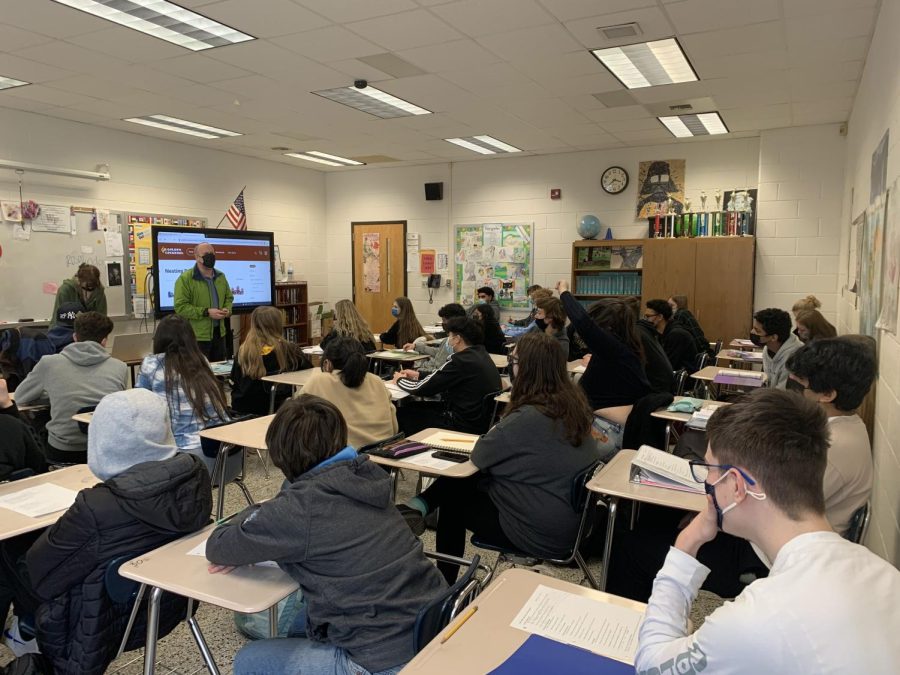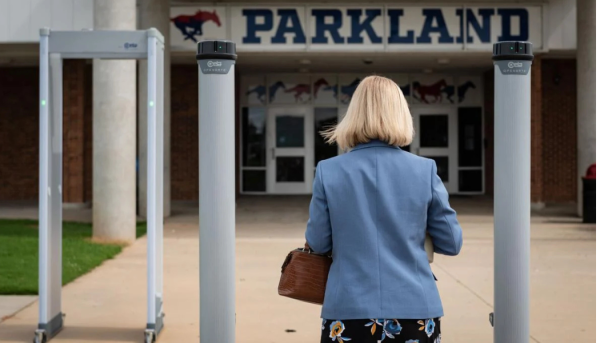Our world is adapting and our classrooms should too
If you walk into a public school in America, upon entering you can immediately see how different things are than they were in the past. Now we have things like new technology and access to use of the internet for simpler teaching. Our world is constantly changing, but something that hasn’t changed is what is being studied in our classrooms. Students are still reading the same books they studied back in the 1900s and are being taught math the same way their parents did on outdated calculators from the 80s, even though we’ve changed the way we use technology to make it easier. Students are no longer interested in an archaic learning environment where repetition and memorization is valued over creativity. If our society is constantly changing, how are we expected to keep up and be ready to enter it when our curriculum doesn’t accommodate change?
A major problem with our education system is that it values repetition and memorization over creative thinking. Students are taught to memorize facts and equations that we can now find with a simple search on a smartphone. The way we are learning isn’t engaging or interesting, and it irons out individuality in the name of standards that must be met through tests. It simplifies students into numbers and grades that determine our value. This isn’t applicable to modern society, because it doesn’t teach students how to think on their feet. We must learn to do things the “right” way, and it doesn’t acknowledge the fact that every problem can be solved in different ways.
In current English curriculums, students are studying stories from hundreds of years ago, reading out of old textbooks that are falling apart. While reading these can be interesting to some, the characters aren’t relatable, and the stories don’t reflect or touch on issues that we face in the current day. There is no reason why students shouldn’t be studying new, culturally relevant texts that allow them to reflect upon and relate to current events. This criticism can also be applied to social studies classes, where students aren’t given the chance to discuss and learn about what’s going on in the world around them. Learning about the past is extremely important, and should never be taken out of the curriculum, but learning about the present should also be valued in the classroom because it will teach students to think more about what’s going on around them and how it affects them. Most of the information we’re learning in school simply is not relevant anymore, and it’s keeping us from being able to function in our constantly changing society.
Even though some may argue that the old, outdated information that’s being taught will be helpful in their future careers, In fact, it was revealed that the average American only uses about 37% of the information they learned in school in their day to day lives, according to a survey commissioned by H&R Block. Many people on the survey also said that more than half of the skills they use in their job they learned while working, not in school. There is no reason why the curriculum shouldn’t be teaching us things we’ll actually need in the future, or value our ability to memorize useless facts over how to do taxes, manage credit, pay bills, take out loans, solve conflicts and things crucial to life as adults.
Especially after enduring online school, we were shown how students need to be prepared to adapt and change, a skill that we aren’t taught due to the curriculum’s focus on productivity and structure. Our outdated learning system is due for an update to help us thrive in our changing society, and we need to be ready to embrace that change and face it head-on.

Ella Ashby is the 2-year Photography Editor of the Zephyr. She loves spending time photographing events around the school, helping out in the library and...








